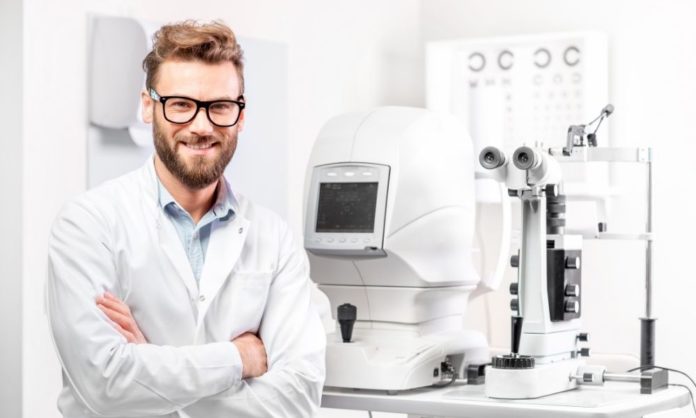With the medical industry always growing and expanding, many students are interested in joining the field. If you’re interested in eye health specifically, you may have heard of an ophthalmologist. If you’re curious about how to start your career in ophthalmology, keep reading about the educational requirements, skills, and advice you need along the way.
Educational Requirements
If you’re just entering college with the goal of one day becoming an ophthalmologist, choosing a fitting major is a great place to start. If you’re wondering what kind of schooling does an ophthalmologist need, the simple answer is that there are many levels of education and steps required for the position. You must complete your college-level studies and earn a bachelor’s degree in a relevant field. Make an impressive GPA your goal, and start studying for the medical college admissions test, or MCAT. From there, you’ll need an additional four years of medical school to complete the US medical licensing exams.
Steps To Take
If you’re currently a college student, start studying for the MCAT. Do your best to achieve high marks in your related major. From there, you’ll apply for a medical school and enroll when selected. This is where you will complete the first part of the medical licensing exam. You’ll participate in rotations and take the second part of the exam. But even after both exams, you’re not ready to hold your own practice quite yet. You’ll need to start an internship (usually one year) and receive residency training. Once you complete these steps, you’ll be ready to start the job hunt!
Essential Skills
Checking all the boxes along your educational and post-graduate journey will set you up for success in the ophthalmology field, but how do you set yourself apart from other candidates? Practice and hone some of your workplace skills to stand out as the best fit for the ophthalmologist role. Effective ophthalmologist candidates possess the following skills:
- Physics and math skills
- Administrative and managerial skills
- Good hand-eye coordination
- Expert knowledge of the anatomy, especially of the eye
- Effective communication skills
- Emotional resilience
- And more
With this knowledge of how to start your career in ophthalmology, you’re ready to begin your journey into the medical field. Study hard and you’ll be a great candidate for your future career.








